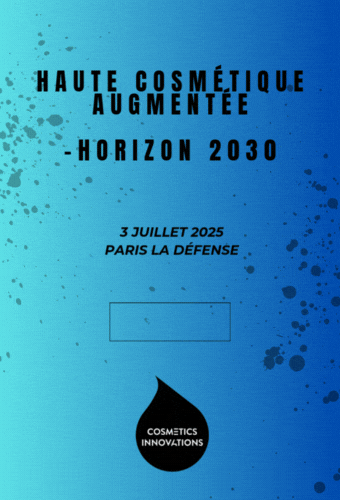Launched in January 2020 after two years of development and a crowdfunding campaign started in October 2019, the young brand surprised everyone with radical choices marking a complete break from the perfume world’s customs. After exactly six months of existence and an exclusive online presence, Floratropia will make their debut at the Paris BHV Marais department store next July.
And yet, its creator, Karine Torrent, is from a perfume background. “Perfume became a passion very early on. I occupied marketing and development positions with people who loved raw materials, and professionally, I evolved with the idea that what actually makes a beautiful perfume is beautiful raw materials,” she explains. After training at Guerlain and Yves Rocher, she joined the Puig group before turning to niche perfumery. “All this made me wonder about the model of modern perfumery and think about how to integrate it to a model with a positive impact on the planet, the biodiversity of perfume plants, and the communities that cultivate them,” she recalls.
Methodic deconstruction
Floratropia has the ambition to question established truths in the world of perfume. “The project consisted in methodically deconstructing and questioning every product development phase, from raw material sourcing to packaging design,” continues Karine Torrent. The objective was to relate the perfumer’s know-how to sustainable development objectives.
The idea of a 100% natural and vegan perfume is nothing new – it is even a major trend in the current perfume landscape. And the industry’s giants have understood that perfectly well: they are all trying to enhance their portfolio of natural ingredients through multiple acquisitions. And yet, people were extremely cautious with the idea of a completely plant-derived creation based on responsible networks. “We even had a lot of very negative feedback,” emphasizes the creator. “There is this firmly anchored conviction that a beautiful perfume cannot be completely natural. Fortunately, lines are shifting thanks to new brands’ obstinacy, as can be seen with 100Bon, who have been working very hard on this issue.”
The encounter with perfumer Delphine Thierry was eventually a triggering factor. “She showed me it was possible to make both 100% natural and exceptional perfumes.”
The four Floratropia perfumes are based on Robertet’s portfolio of natural raw materials, with a few beautiful innovations, like the use of Hedychium, whose culture in Madagascar offers farmers complementary revenue. “The choice of raw materials is both artistic and ethical,” highlights Karine Torrent. “We wanted perfumes that grow in the earth to provide perfume plants and growers with a prospect.”
“More perfume, less packaging”
Floratropia also asserts their identity with a packaging choice which breaks with the current perfume codes. Perfumes are no longer sold in luxurious bottles to be thrown away when the product is empty, but in flexible refills which feed a travel size spray decorated with a vegan leather imitation sold separately. Plus, nothing prevents the consumer from using their own spray if they already have one!
“It is the best solution as regards the carbon footprint throughout the value chain. Our aluminium, PET, and PE ‘Resources’ consume very few materials and are very energy-efficient; they are light and do not require any overpackaging. Of course, they are not perfect, in particular because they are not recyclable. That is why we invite our customers to send them back to us for free, so that we can manage their end-of-lives as part of a partnership with a German recycling player,” explains the creator.
Not only this solution helps reduce the impact of packaging, but it also makes the product more affordable. “When you buy a perfume, you also buy a lot of packaging. By changing things in terms of packs, we also change the environmental and the economic equations. Natural perfumes are costly, but our packaging solution helps focus the product’s value on perfume, by reducing waste and carbon emissions. In short, we offer more perfume for less packaging.”
As Floratropia is about to enter the physical distribution channel, the brand is also considering the possibility of providing refills in stores.
Launched just before the Covid-19 pandemic, Floratropia aims to provide an answer to several questions regarding contemporary consumption patterns. “Fast fashion is much criticized, but the current model of fast perfumes is not neutral either, with its furious launch pace combined with a standardization of the offering, even though the overall impacts cannot be compared,” concludes Karine Torrent. Well, welcome to the world of slow perfumery!




































